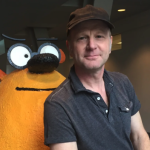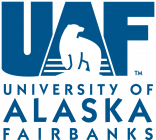Exploring the potential of digital education frameworks to build understanding of socioecological impacts of Alaskan environmental change
Navigating the New Arctic (NNA) is one of NSF's 10 Big Ideas. NNA projects address convergence scientific challenges in the rapidly changing Arctic. The Arctic research is needed to inform the economy, security and resilience of the Nation, the larger region and the globe. NNA empowers new research partnerships from local to international scales, diversifies the next generation of Arctic researchers, enhances efforts in formal and informal education, and integrates the co-production of knowledge where appropriate. This award fulfills part of that aim by supporting planning activities with clear potential to develop novel, leading edge research ideas and approaches to address NNA goals. It integrates aspects of the natural environment and social systems, addresses important societal challenges, builds significant educational opportunities, and engages local and Indigenous communities.
As the Arctic warms, social and environmental changes threaten the Arctic, its inhabitants, and their ways of life. Mitigating the effects of these changes must include educating young people about the complex interactions involved since their generation will experience the growing impacts over time. Many science concepts, such as rising temperatures and carbon dioxide levels, are challenging to teach and understand because they are literally invisible, while their effects, such as salmon killed by the heat stress of warming water, are all too visible. This project is exploring effective ways to teach challenging issues of social and environmental change, and potential mitigation solutions, through interactive educational game play with embedded assessments that are evidence-based and culturally responsive, rooted in Alaska Indigenous knowledge and values. The ultimate goal of the project is to use the findings from this exploratory research to develop and assess the educational potential of an interactive STEM simulation framework for students in Alaska, the Arctic, and beyond.
WGBH Educational Foundation (GBH), in partnership with the University of Fairbanks Alaska; and Raven's Group, a consultancy; will lead an inclusive and meaningful research process towards designing an engaging and effective educational STEM simulation framework. The team will join together educators, game designers, researchers, Alaskan Indigenous and non-Indigenous families, and community centers in brainstorming sessions, interviews, focus groups, mechanics testing, and culturally responsive assessment development. Through this formative work, the team will develop the framework's content, learning goals, and standards-aligned curriculum along with embedded assessments designed to scaffold students' progress and demonstrate how well the students have reached the learning goals of the framework.
This award reflects NSF's statutory mission and has been deemed worthy of support through evaluation using the Foundation's intellectual merit and broader impacts review criteria.
Given the 2020 COVID-19 pandemic, and ongoing uncertainty around travel and in-person meetings in 2021, the project is revising its original plans to restructure some or all its work as remote - with a combination of synchronous and asynchronous communication technologies including video conferencing. This project will still perform its proposed planning activities and engage academic scholars, industry partners, and local Alaska Native partners. The goal of this effort is to design a digital simulation learning game that introduces the changing Arctic to 4th – 6th graders. Field work in support of this planning grant will include in-person or remote/virtual meetings and interviews in Alaska. Raven’s Group, LLC (a program development and evaluation group focusing through an Indigenous lens on K-14 opportunities for Alaska Native and rural Alaskan youth) will facilitate testing, evaluation, surveys and interviews as needed. Oversight for all research efforts will come from GBH and from co-PI Dr. Amy Vinlove at the University of Alaska, Fairbanks (UAF). All project activities will be grounded in culturally responsive approaches and methodologies. UAF will be responsible for the project’s Institutional Review Board (IRB).
Project Outcomes
OVERVIEW
Today's students will experience the growing impacts of climate change over time and for years to come. This project was an NSF planning grant exploring effective ways to approach these challenging issues and engage Indigenous students with an inspirational approach towards positivity and personal agency.
The interactive framework we envision is most likely to be a digital game or suite of games – its working title is Sharing the Catch - and so this planning grant is facilitating our exploration of educational gameplay.
DETAIL
This NNA planning grant has allowed GBH and its growing number of Alaskan partners to explore effective ways to teach the challenging issues involved in climate change. We have been building on the extensive work we have been conducting with Indigenous communities across Alaska with our Peabody-award winning TV series for PBS KIDS, Molly of Denali. This planning grant allowed us to onboard partners and establish the resources needed for internal work; reach out to diverse partners at multiple geographic locations; and plan for work under COVID-19 conditions.
Through prototypes, we were able to pitch the game to multiple possible partners and funders, and we actively continue to seek funding.
Our game development discussions have ranged from linguistics and language revitalization to the loss of ice needed for hunting. GBH's technical work took place across a number of axes relevant to games design, including curriculum development; reviewing the real-world challenges of digital distribution and broadband access; conducting an extensive landscape review of existing games; and continuing our research of Indigenous Ways of Knowing.
Our fieldwork has been with Raven's Group, conducting interviews with eighteen Alaska Native families to hear firsthand the impacts of climate change on their traditional activities. This research informed our thinking, giving us a clearer focus on the power of storytelling, and we will weave this into Sharing the Catch. The results suggest efforts should be made to ensure that the core of the game is, in fact, indigenously grounded. The interviewees consistently emphasized that traditional practices of ways of life (subsistence) are gained through experience, and the specifics of these practices are highly variable by region.
This project has been closely aligned with other Molly of Denali initiatives and we have coordinated with other NSF-funded Arctic research to find common ground and to share best practices. Our output is the development of a game, Sharing the Catch. Sharing the Catch will engage students in designing a game viewed through Indigenous perspectives to understand how Native people have adapted throughout the years and to explore the decisions they face today.
Having a student see change in an experiential educational game—and through the lens of reciprocal, respectful relationships with the land—will provide a social and emotional connection with the land. Our planning work suggests that digital games can be helpful in making the impacts of these invisible forces more visible. In a simulation game, we can represent invisible factors—such as carbon dioxide levels, or temperature rise and change over time—with highly visual variables that make sense in Molly's world such as why the salmon her family fishes for every season at fish camp are less plentiful.
The STEM digital game planned for this grant would be delivered as a mobile web game and/or standalone app, for 7th to 8th graders as a game informed by students during its participatory design phases. We have a promotional video showing our game prototype, available upon request. It will use the NGSS and Indigenous frameworks to guide the content, particularly related to climate.
Intellectual Merit:
The game would be designed to create measurable changes in outcomes for students' understanding of their rapidly changing Arctic climate, and it will support under-represented students in dynamic STEM education initiatives especially Alaska Native interest in science that directly relates to their social and natural environment. By addressing the impact of climate change in Alaska, we hope to advance the research and understanding of key issues in STEM education and to answer important questions around the value of participatory game design, integration of Indigenous Ways of Knowing and game-based learning, and educator practice and professional development.
Broader Impacts:
We believe our game will have implications beyond its specific stated activities and intended products by informing best practices for the wider educational gaming community around inclusive and collaborative design in the emerging fields of both Indigenous and science-based learning games. By building on a depth of experience in representation and inclusion that has been a signature of GBH's work on Molly of Denali, we will document best practices in inclusive research and production work, especially around games design and STEM education. The game Sharing the Catch will be further developed and, if funded, nationally disseminated, helping to set the standard for high-quality, research-based approaches in developing games for learning.


